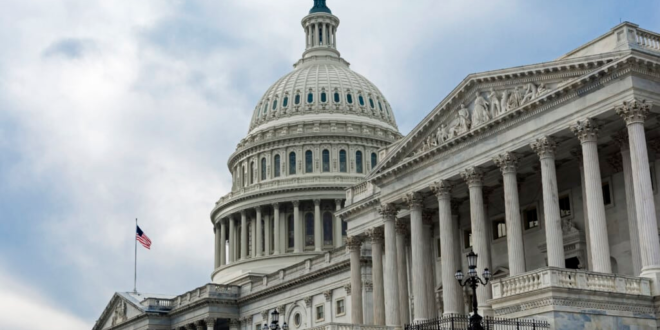President Donald Trump is pressuring Ukraine to accept a peace framework granting Russia significant concessions, including sanctions relief and formal U.S. recognition of Moscow’s illegal annexation of Crimea. Congress, however, need not watch from the sidelines. Lawmakers have the power to shape negotiations toward a durable peace by ensuring applicable laws are upheld.
Sanctions Relief
A 2017 law known as CAATSA allows Congress to review and, if necessary, disapprove of the removal of many Russia sanctions designations — specifically those imposed pursuant to a series of executive orders issued by the Obama administration, prior Ukraine-related legislation, or CAATSA itself. This power also applies to two Russian government compounds in the United States that Washington shuttered in December 2016.
Since 2021, Treasury has issued most Russia sanctions under a new executive order not covered by CAATSA. But before leaving office, the Biden administration designated or redesignated hundreds of Russian entities and individuals pursuant to Executive Order 13662, which is codified in CAATSA. Among the targets were key financial institutions, including Russia’s biggest banks, as well as firms in the energy and defense sectors.
If Trump attempts to reverse these measures, he must first notify Congress and explain why. Lawmakers then have at least 30 days to affirm the sanctions relief advances U.S. interests or block it.
Whatever deal may emerge from the current talks, Russia will remain a persistent threat to Ukraine, NATO, and other U.S. interests, including through its growing ties with China, North Korea, and Iran. Therefore, all sanctions and export controls targeting Russia’s military-industrial complex should remain.
Regarding other sanctions, lawmakers should make clear to Trump and Moscow that Congress will permit relief only for a good deal. Such an agreement should include European-led security guarantees for Ukraine and should place no restrictions on Ukraine’s armed forces or Western military assistance for Kyiv. The deal should also stipulate that all sanctions will be snapped back if Russia attacks again.
Crimea
Recognizing Crimea as Russian territory would break with longstanding U.S. policy and international law. This includes the first Trump administration’s 2018 “Crimea Declaration,” which echoed the 1940 Welles Declaration’s refusal to recognize Soviet dominion over the Baltic states. Reneging on that principle would send a dangerous message to Vladimir Putin and other autocrats harboring revisionist ambitions.
Congress has also made its will clear on this issue. In CAATSA, it declared non-recognition of Russian-occupied territory to be U.S. policy. While this statement is non-binding, lawmakers from both parties have backed legislation that would be enforceable. Relatedly, many of the sanctions codified under CAATSA pertain to Russia’s violation of Ukraine’s territorial integrity, including in Crimea.
Furthermore, Congress has prohibited the use of Pentagon funding through fiscal year 2025 for “any activity that recognizes” Russian sovereignty over occupied Ukrainian territory, though the administration can waive that restriction. Lawmakers should extend that provision and condition the waiver on congressional approval.
Likewise, the Further Consolidated Appropriations Act, 2024 barred the use of funding for “the implementation of any action or policy that recognizes the sovereignty of the Russian Federation over Crimea or other territory in Ukraine.” The March 2025 continuing resolution appears to have rolled this prohibition over. Lawmakers should extend it further.
‘Ukraine Leverage Package’
In addition to ensuring compliance with existing statute, Congress can help bolster U.S. negotiating leverage.
Although the Trump administration has continued to deliver materiel pledged by its predecessor, it has not issued new assistance packages for Kyiv. That will eventually need to change to prevent a drop-off in U.S. assistance and leverage. While the administration has around $3.8 billion worth of authority for arms supplies to Ukraine, Congress must ensure the Pentagon has sufficient funds to replace them.
Lawmakers should pass a “Ukraine Leverage Package” allocating additional aid authority and funding. That legislation could also tighten sanctions on Russia’s economy, particularly its oil revenue.
 Eurasia Press & News
Eurasia Press & News




